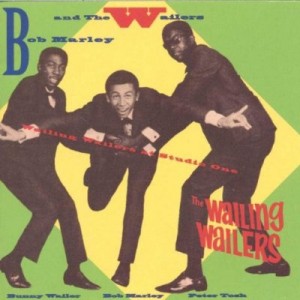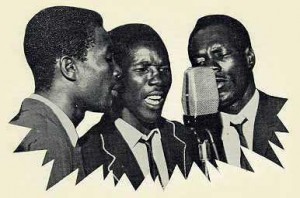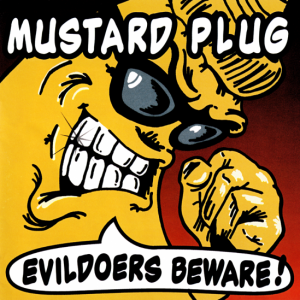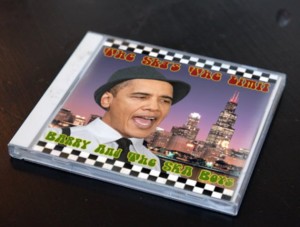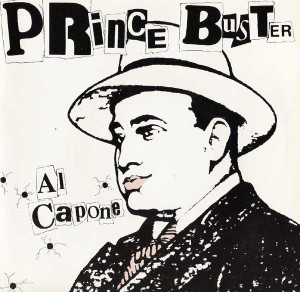Prince Buster
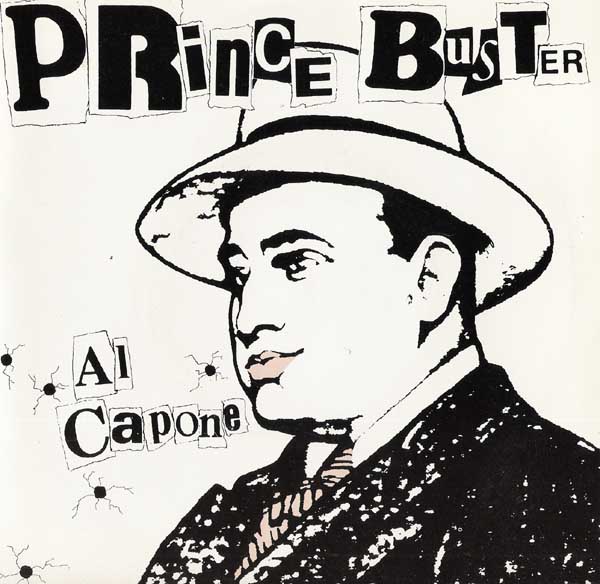
Cecil Bustamente Campbell, O.D. (born 28 May 1938), better known as Prince Buster, and also known by his Muslim name Muhammed Yusef Ali, is a musician from Kingston, Jamaica. He is regarded as one of the most important figures in the history of ska and rocksteady music. The records he made on the Blue Beat label in the 1960s inspired many reggae and ska artists.
Contents [hide]
1 Biography
1.1 Early life
1.2 Artistic and producing career
1.3 Post-recording life
2 Album discography
3 UK hit singles
4 References
[edit]Biography
[edit]Early life
Campbell began his professional career as a singer in 1956; performing in Kingston nightclubs. He formed a succession of bands with several of his friends, none of which were successful.
Campbell’s music career reached maturity with the growth of the sound system. Across Jamaica, music promoters drove vans filled with stereo equipment to stage mobile parties. The operators of the sound system would play the popular R&B dance records of the day and often they would have a vocalist called a toaster call out the dancers’ names, chant in rhythm, and make light-hearted boasts. Deejay “toasting” was one of the precursors to the style of vocal delivery that eventually evolved into rap.
Eventually, Campbell was introduced to Clement Dodd, a musically-inclined businessman who operated one of Kingston’s most popular sound systems. Interestingly, Campbell was not hired as a musician but as security; because of rivalries between fans devoted to a particular sound system, the parties sometimes could become quite rough, and Campbell had been a skillful amateur boxer as a teenager. It was in this line of work that he earned the nickname “The Prince”, which along with his boyhood moniker “Buster” (from his middle name Bustamente), formed the name under which he would later become famous.
[edit]Artistic and producing career
In 1960, Buster produced a record for the Folkes Brothers for the Wild Bells label, “Oh Carolina”, under his nickname. Buster dubbed himself ‘The Voice of the People’, and gave a voice to those people with “Oh Carolina”, which expressed black Jamaicans through a commercially successful medium.[1] This record was Jamaica’s first to involve an element of African music – the drumming in the record was provided by Count Ossie, the lead nyabinghi drummer from the rastafarian camp, Camp David, in the hills above Kingston. It was an instant hit in Jamaica, and Buster’s early records, which were released in the UK by Blue Beat Records, contributed greatly to the developing sound of ska. Buster was soon recording his own compositions as well as producing records for others.
From 1963 to the end of the decade, Buster wrote and produced hundreds of songs for Blue Beat. Soon after his initial success, Buster was drawing international attention. He toured Britain extensively during this period, playing to sellout crowds, and appeared on commercial TV broadcaster Rediffusion London’s Friday early-evening pop show Ready, Steady, Go! in 1964. While in England, Buster met World Heavyweight Champion boxer Muhammad Ali, a meeting that resulted in Buster joining the Nation of Islam, as well as Ali being mentioned in the song “Earthquake on Orange Street”,[2][3] which was subsequently referenced by the UK group Madness, who took their name from one of his songs, in their first single “The Prince”. He went on to be a popular as a recorded and touring artist in Europe, and though none of his singles charted as highly in the United States, he went on a successful American tour in 1967 to support the little-known RCA Victor LP releaseThe Ten Commandments (From Man To Woman). Today, the album (catalog LSP-3792) is a highly-sought-after rarity among collectors of ska and foundation reggae.
Prince Buster had two hit singles in the UK: first, “Al Capone” (#18, 1967), and much later, with an updated version of “Whine And Grine”, which was used on a television advertisement (#21, 1998).[4] In 1972 Buster gained notoriety for the title track of his album Big Five, a raunched-up re-write of Brook Benton’s “Rainy Night in Georgia” with explicit references to sex and drugs.
Besides being a pioneering musician, Buster, like Clement Dodd, was also very interested in business. He started a record shop in Kingston in the early 1960s which is still owned and operated by his family today. Later he founded a jukebox company. He also started the Prince Buster Records label, at first as an attempt to keep the Melodisc label viable,[5] but today is used to reissue his music.
[edit]Post-recording life
This biographical section of an article needs additional citations for verification. Please help by adding reliable sources. Contentious material about living persons that is unsourced or poorly sourced must be removed immediately, especially if potentially libelous or harmful. (July 2011)
The ska sound and rhythms were undergoing a change by the late 1960s, musicians were slowing the beat and introducing more subtle rhythmic pulses that audiences found less frantic and therefore easier to dance too. This new music was eventually called rocksteady, slower than ska and more influenced by gospel and soul. Rocksteady itself would eventually be replaced by reggae. In addition to the musical influence that ska and rocksteady exerted, many reggae lyrics expressed an Afrocentric, Marcus Garvey-inspired worldview, which had been present in some of Prince Buster’s songs. Bob Marley, Toots Hibbert, and other reggae stars have acknowledged their debt. Buster also made a cameo appearance in the acclaimed international hit movie, The Harder They Come. However, reggae’s Rastafarian orientation led the Muslim Prince to keep an arms distance away from the new music. He turned toward more traditional tourist-based business ventures instead and gracefully exited the Jamaican music scene.
By the late 1970s, Buster was in serious financial trouble. His business ventures were all posting losses or low profits, and the loans he had taken out to start them were catching up. Fortunately for him, ska was experiencing a revival in the United Kingdom, and the most prominent bands of the revival drew from his material. In 1979, the band Madness released their first record, a tribute to Buster called “The Prince”, which urged ska fans to remember “the man who set the beat”. The b-side to this record was a cover of the Prince Buster song “Madness” from which they took their name. Their second single was a cover of Buster’s “One Step Beyond” which reached the Top 10. On their first album, The Specials covered “Too Hot” and drew heavily on “Judge Dread” in the song “Stupid Marriage”, and “Al Capone” in the song “Gangsters”. The Specials also included a cover of Buster’s version of “Enjoy Yourself” on their second album. Not to be outdone, the The Beat included covers of the Buster originals “Rough Rider” and “Whine & Grine” on its first album. Interest in Buster soared during this time; he received royalties when his songs were covered by 2-Tone bands, and his old records were re-issued and sold well. Buster’s songs continued to be popular sources for ska bands in the U.S., an example being The Toasters covering “Hard Man Fe Dead” in 1996. In 1989, Prince Buster recorded a 12″ single with London based ska and blues band, The Trojans, which was released on Gaz’s Rockin’ Records in the UK. “Stack O Lee” was a limited edition and it sold out within weeks.
Prince Buster now lives in Miami, Florida. He has performed at several shows over the past few years, including: the 2002 Legends Of Ska festival in Toronto; Dedham, Massachusetts in 2002; the 2006 Boss Sounds Reggae Festival in Newcastle upon Tyne, the 40th Montreux Jazz Festival in Switzerland with the Delroy Williams Junction Band, and 2007’s Rhythm Festival. During the last day of the 2008 Notting Hill Carnival, Prince Buster made an appearance on the Gaz’s Rockin’ Blues stage, alongside The Trojans.
Prince Buster was due to make a rare live appearance in London on September 5, 2009 at Camden Centre, but it was cancelled two weeks beforehand, with ticket holders being informed by e-mail.
